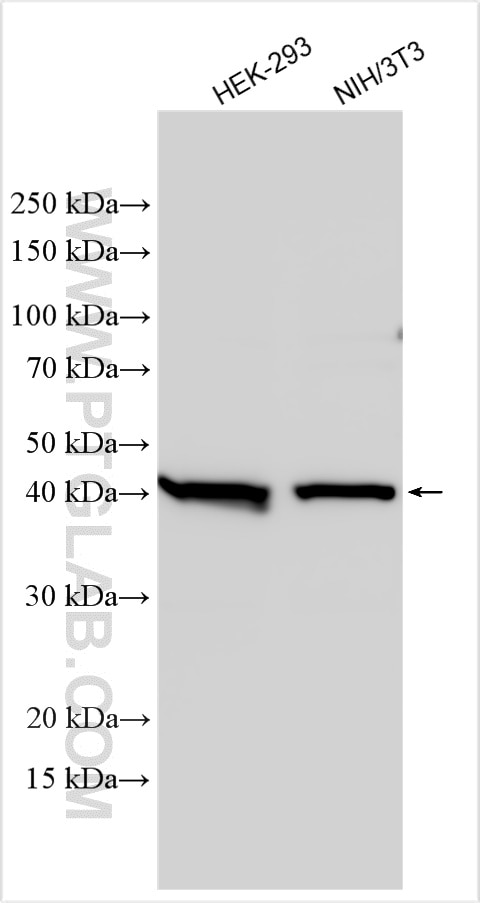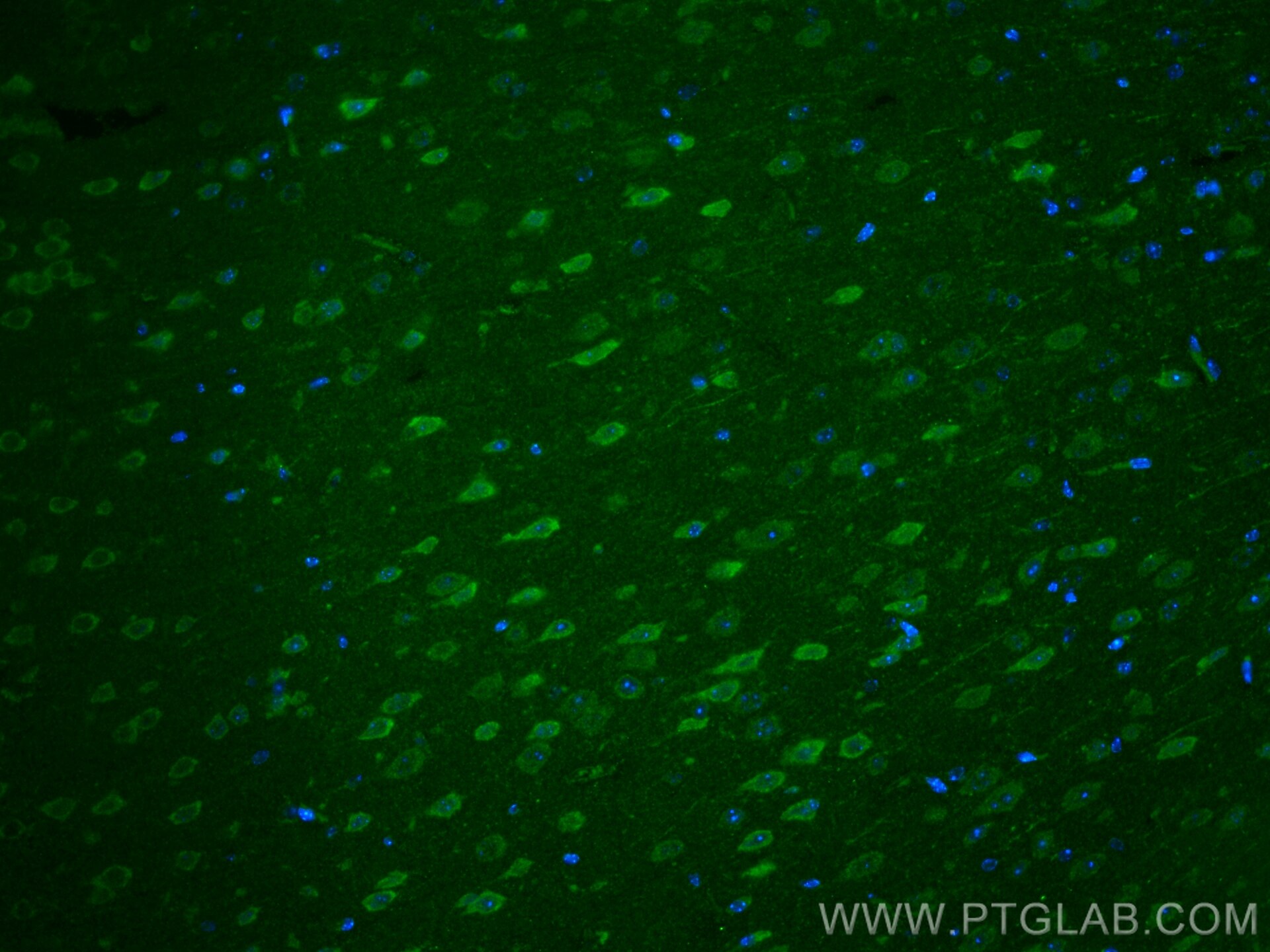Tested Applications
| Positive WB detected in | HEK-293 cells, NIH/3T3 cells |
| Positive IF-P detected in | mouse brain tissue |
Recommended dilution
| Application | Dilution |
|---|---|
| Western Blot (WB) | WB : 1:500-1:2000 |
| Immunofluorescence (IF)-P | IF-P : 1:50-1:500 |
| It is recommended that this reagent should be titrated in each testing system to obtain optimal results. | |
| Sample-dependent, Check data in validation data gallery. | |
Published Applications
| WB | See 1 publications below |
Product Information
29749-1-AP targets FGF10 in WB, IF-P, ELISA applications and shows reactivity with Human, Mouse samples.
| Tested Reactivity | Human, Mouse |
| Cited Reactivity | mouse |
| Host / Isotype | Rabbit / IgG |
| Class | Polyclonal |
| Type | Antibody |
| Immunogen |
CatNo: Ag31278 Product name: Recombinant human FGF10 protein Source: e coli.-derived, PGEX-4T Tag: GST Domain: 38-150 aa of BC105021 Sequence: QALGQDMVSPEATNSSSSSFSSPSSAGRHVRSYNHLQGDVRWRKLFSFTKYFLKIEKNGKVSGTKKENCPYSILEITSVEIGVVAVKAINSNYYLAMNKKGKLYGSKEFNNDC Predict reactive species |
| Full Name | fibroblast growth factor 10 |
| Observed Molecular Weight | 40 kDa |
| GenBank Accession Number | BC105021 |
| Gene Symbol | FGF10 |
| Gene ID (NCBI) | 2255 |
| RRID | AB_2918343 |
| Conjugate | Unconjugated |
| Form | Liquid |
| Purification Method | Antigen affinity purification |
| UNIPROT ID | O15520 |
| Storage Buffer | PBS with 0.02% sodium azide and 50% glycerol, pH 7.3. |
| Storage Conditions | Store at -20°C. Stable for one year after shipment. Aliquoting is unnecessary for -20oC storage. 20ul sizes contain 0.1% BSA. |
Background Information
FGF10 belongs to the FGF7 subfamily. FGF10 is a paracrine signaling growth factor of 215 amino acids with a typical signal sequence for secretion and plays an essential role during development and tissue homeostasis in adults (PMID: 30405705). FGF10 is mainly produced by neuron and microglia/macrophages (PMID: 28981091). The calculated molecular weight of FGF10 is 23 kDa. Sometimes higher molecular weight around 40 kDa can also be observed, which may be a modified variant of FGF10.
Protocols
| Product Specific Protocols | |
|---|---|
| IF protocol for FGF10 antibody 29749-1-AP | Download protocol |
| WB protocol for FGF10 antibody 29749-1-AP | Download protocol |
| Standard Protocols | |
|---|---|
| Click here to view our Standard Protocols |






